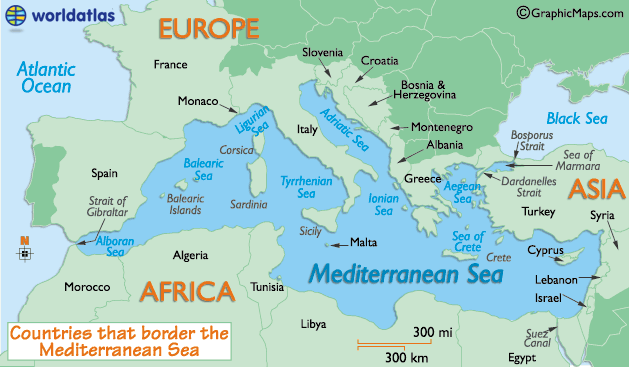The Etruscan Civilization flourished in what is now Central Italy
from about 800 to 264 BC. While evidence would suggest that the Etruscans were
highly educated and productive in their scholarship, almost no evidence remains
of that scholarship in the form of texts or records. However, there is some
evidence that the Etruscans employed such practices as haruspicy and taught and
learned in special institutes, kind of like universities.
Below are a couple of maps. Use the first to locate Italy
within the context of the Mediterranean, and then look at the second to get a
better idea of what Etruria covered.
So little survives of Etruscan culture that it is difficult
to get an idea of what or how the Etruscans learned, and much of what we do
know is really just scholarly speculation, but I’d like to touch on a few
aspects of education in the Etruscan world.
The Etruscan religion was complex and encompassed nearly
every aspect of life, and so required intense study. For this study, there were
training institutes—possibly a bit like a university, with multiple faculties.
Here, they taught not only religious theology and laws, but also the knowledge
required by the priests, which was an encyclopedic collection of knowledge
regarding everything from astronomy to ornithology to hydraulics. We have so little surviving written work
from these institutes that it would seem fairly safe to assume that much of
this knowledge was transmitted orally. The most reputable of these institutes
was at Tarquinii, the chief city of the twelve cities of Etruria.
 |
| The modern Italian city of Tarquinia, where the Etruscan city of Tarquinii once was. |
One interesting Etruscan practice that we do know something
about is a form of diviniation called haruspicy. This means that Etruscan scholars learned to examine the
entrails of sacrificed animals (usually sheep). Here is an example of that,
known as the bronze sheep’s liver of Piacenza:
 |
| Gross. |
There are a number of theories as to why we have no real
Etruscan literature or scholarly works. One is that those works were
systematically destroyed by later civilizations (book burnings), and another is
that they were accidentally destroyed (in a fire, etc.). However, another
prominent theory is that the Etruscans just didn’t write much down, that they
relied heavily upon an oral transmission of knowledge, and that as they died
out, as a civilization, that oral knowledge was lost.
Cooley, Alison. The Afterlife of Inscriptions: Reusing,
Rediscovering, Reinventing & Revitalizing Ancient Inscriptions. London:
Institute of Classical Studies, School of Advanced Study, University of London,
2000.
Hall, John Franklin. Etruscan Italy: Etruscan Influences on the
Civilizations of Italy from Antiquity to the Modern Era. Provo, UT: Museum
of Art, Brigham Young University, 1996.
Richardson,
Emeline. The Etruscans; Their Art and
Civilization. Chicago: Univ., 1964.



It's interesting that the only people that were educated at these institutions were priests and religious figures. It brings up the matter that only those who were considered to have power were given the privilege of learning.
ReplyDeleteSince most knowledge was passed on orally during this time and was rarely written, it's pretty valuable that we know at least some things about the Etruscan Civilization today.
I think it is kind of funny how we always act so surprised when we hear that only a select elite group could be learned in a society. I am pretty sure that education of the masses is a relatively new invention. And even then, we still only educate the people privileged enough to be able to pay for their schooling (after public education that is).
ReplyDeleteWhat I wonder is if we are looking too narrowly in our definition of education, or "learned". Yes, only the priests went to a university type institution and learned about similar subjects that we consider "education", but what about all the tradesmen and artisans and merchants? All the guilds that teach and have standards of excellence for their craft could be considered educational institutions. I am not sure the Etruscans had those, but they could be included in the examination of who was learned, and how big that group was in a culture.
ReplyDeleteThough I agree, education of the HUGE masses is a recent ideology, that every single person has the right to some basic education is definitely new.
Mike is right it wasn't important to educate the masses until the Reformation and more specifically the Puritans. They found it so important that everyone have access to the word of God that they educated all their children. That is how we have a public education.
ReplyDeleteMorgan makes a good point that there are multiple kinds of education and learning. Though I think that guilds were established later.
Morgon does make a good point that we are thinking too narrowly, but I want a broad/diverse/liberal arts/well rounded education not just learn how to smelt iron ore... I am very grateful that we educate the masses. I had never really thought about that notion, we definitely take it for granted. It also never really jumped out at me that most past civilizations did not educate the masses. This makes me wonder how skewed our perception of the past is based on looking at it through the lens of our own culture/time.
ReplyDeleteJust wanted to add what Dr. Burton said in class today. Knowledge institutions could be better understood as formalized knowledge. So that would clearly include many types of learning and knowledge dissipation.
ReplyDelete